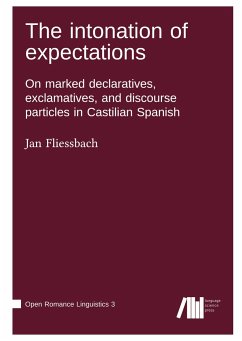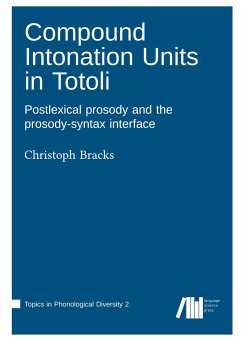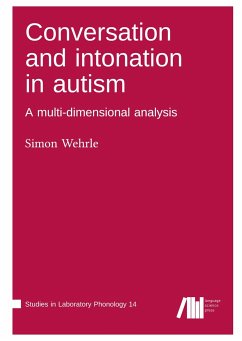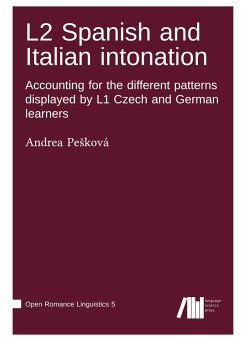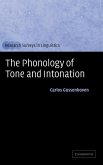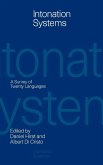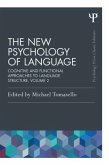This book provides a new perspective on prosodically marked declaratives, wh-exclamatives, and discourse particles in the Madrid variety of Spanish. It argues that some marked forms differ from unmarked forms in that they encode modal evaluations of the at-issue meaning. Two epistemic evaluations that can be shown to be encoded by intonation in Spanish are obviousness and mirativity, which present the at-issue meaning as expected and unexpected, respectively. An empirical investigation via a production experiment finds that they are associated with distinct intonational features under constant focus scope, with stances of (dis)agreement showing an impact on obvious declaratives. Wh-exclamatives are found not to differ significantly in intonational marking from neutral declaratives, showing that they need not be miratives. Moreover, we find that intonational marking on different discourse particles in natural dialogue correlates with their meaning contribution without being fully determined by it. In part, these findings quantitatively confirm previous qualitative findings on the meaning of intonational configurations in Madrid Spanish. But they also add new insights on the role intonation plays in the negotiation of commitments and expectations between interlocutors.
Hinweis: Dieser Artikel kann nur an eine deutsche Lieferadresse ausgeliefert werden.
Hinweis: Dieser Artikel kann nur an eine deutsche Lieferadresse ausgeliefert werden.

